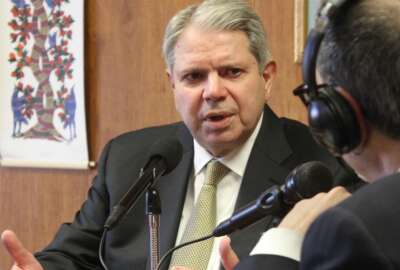
Happy crappy anniversary
What's a glassy-eyed carp in a dirty pond got to do with pandemic life?
You might call the 12 months that started March 12, 2020 a lost year. Or one of the greatest years. If life can be unfair, the past 12 months has provided incontrovertible confirmation. Even the most productive and accomplished people are tempered by knowledge of those lost to the virus.
All in all, a mixed year of gains and losses.
The other day I interviewed an advisor to the director of the Peace Corps. Kate Raftery was a volunteer in the 70s, and has been involved with the Peace Corps off and on ever since. We discussed the fact that soon after the pandemic started, the Peace Corps had to pull home 7,000 volunteers — and they did it within a week. A superlative logistics and managerial exercise.
The volunteers? They lost out on a dream job. It’ll probably be the end of this calendar year before volunteers will return to their host countries, Raftery said. The Peace Corps will hold open the slots for the recalled people, she said, but as a practical matter many of them will have had a need to move on with their lives. The mode of volunteers are in their early- or mid-20s. They’re going to college or grad school, maybe getting married. For many, the opportunity will have passed. Tough “what if” to have to live with.
Retirees have also had a lost year. I had coffee with a close friend who retired from the clergy a few years ago. He and his wife are active in their early 70s. But you never know how many good years you’ll have in retirement, he said. He felt the pandemic, by depriving people of the chance to travel and do things, robbed his cohort of a year.
Everyone has had a year of reduced human contact. That’s a chiaroscuro blessing. Many of my federal and industry interview subjects since last March have been working from home. Quite a few, while they love their kids, are sick of having them in the house. I’ve heard, and seen on Zoom, gallivanting toddlers, bored dogs and cats, and spouses tiptoeing around in the background.
On the other hand, many people have made proverbial lemonade out of the year’s circumstances, nurturing victories of varying size.
I interviewed Bill Lietzau, the director of the Defense Counterintelligence and Security Agency. He arrived there last March 30th. Virtually, of course. Just as the whole hairball of background investigations and the Trusted Workforce initiative were landing there and out of the Office of Personnel Management. Yet, like the retired Marine Corps colonel that he is, Lietzau charged that particular hill.
Lietzau said the scattering of employees caused an increase in clearance application times, but also a compensating reduction in “ingests” of new applications. He said the several-year effort to cut the backlog of some 700,000 applications to its current 200,000 continued its progress during the transition to a new agency and through the effects of the pandemic.
I also checked in with Lynette Sherrill, the executive director of Enterprise Command Operations for the Office of Information Technology at Veterans Affairs. Her office had the job of supporting some 150,000 people — nearly half the VA workforce — when they went teleworking. I joked that her help desk contractor had to tell 150,000 people to click on the lower left hand corner of the Zoom screen to get themselves heard. Like IT people throughout the government, though, Sherrill and her team got it done.
From a financial standpoint, people fortunate to keep working through the pandemic have been able to layer in some added security by saving more. A search of the literature shows no one really knows how much more, or whether people will spend it after the pandemic. Mostly, interpretations are driven by the political stripe of the commenter.
Feds, though, have saved some more. The evidence: In the three months before the pandemic, Thrift Savings Plan savings rose by $5.85 billion. In the same three months this year, savings rose by $6.2 billion. A TSP spokesman says some of this is from cost-of-living increases. But the TSP board suspects a 1.5% increase comes from changes in savings behavior. That makes sense, given the commuting costs not spent, the vacations not taken, the new suits and dresses not purchased.
Consensus has it that work patterns have been permanently changed.
Yet you see sprigs of renewal. Like many cooped up Americans, my wife and I started taking long walks when the panicky shut-in, lockdown period first started. We’ll go five, six, seven miles. I don’t know why we didn’t already do this. I’m a former marathon runner, she does long bicycle rides.
Anyway, we pass a pond on one of our routes. Often kids fish there, lucklessly. The other day a group of boys was by the pond, their gear scattered all over, whooping it up because one of them had caught and was holding up a 9-pound carp. A huge fish from this little, dark, neighborhood park pond! We stopped and beheld the whiskered thing before he released it back into the pond. Somehow, it was a sign.
Nearly Useless Factoid
By Alazar Moges
Source: Columbia Tribune
Copyright © 2025 Federal News Network. All rights reserved. This website is not intended for users located within the European Economic Area.
Tom Temin is host of the Federal Drive and has been providing insight on federal technology and management issues for more than 30 years.
Follow @tteminWFED
Related Stories





